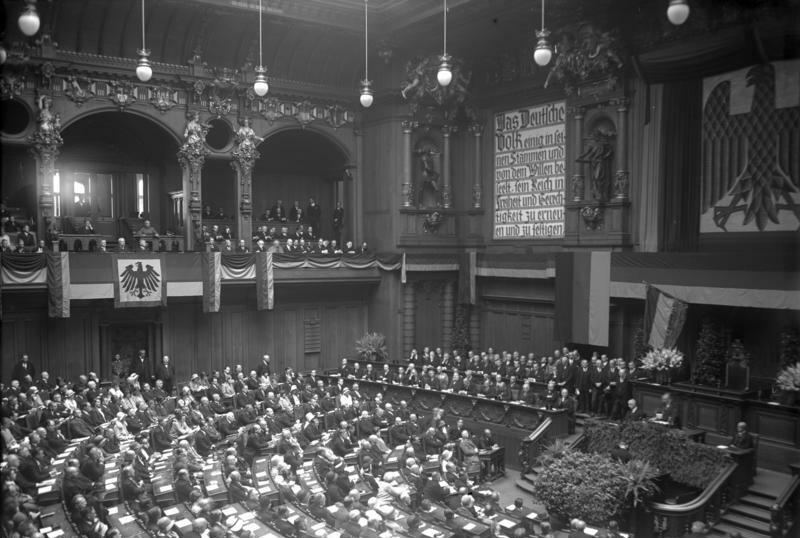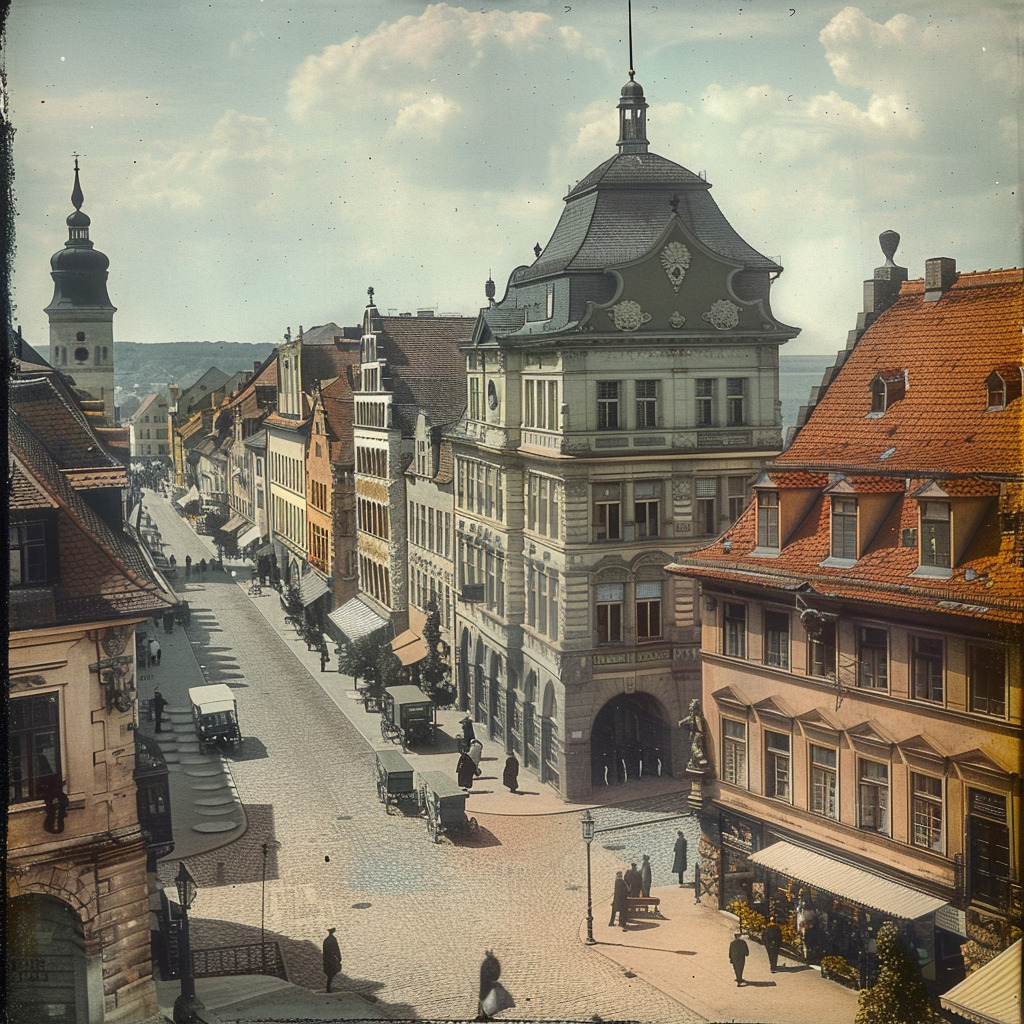The Journey to Weimar
Richard and Grace Walker stood in the dimly lit attic of their grandparents’ house, their eyes fixed on the strange, antique contraption before them. The time machine, a curious mix of brass gears and glowing dials, hummed softly, inviting them to explore yet another chapter of history.
“Ready, Grace?” Richard asked, adjusting his grip on the machine’s controls.
“Always,” Grace replied, a gleam of excitement in her eyes.
Richard set the coordinates for Germany, 1919, and with a whirring of gears, the world around them blurred and shifted.
Arrival in Berlin
The twins emerged in the midst of a chaotic Berlin. The streets were filled with people, their faces etched with worry and anger. Buildings bore the scars of war, and the air was thick with the tension of political unrest.
“Looks like we landed right in the middle of something big,” Grace observed, watching as a crowd gathered around a speaker on a makeshift stage.
Richard nodded. “Let’s find out what’s going on.”
They approached the crowd, blending in as best they could. The speaker, a man in his forties with a fervent expression, was addressing the masses about the failures of the current government and the need for change.
“Berlin is no longer safe for our new democracy!” he shouted. “The Spartacists and Freikorps are tearing this city apart. We must find a place where we can establish a true republic, free from the violence and chaos that plagues our capital.”
A woman standing nearby turned to the twins. “It’s madness, isn’t it? The war is over, but the fighting never ends.”
Richard leaned closer. “What’s happening here? Why is Berlin so unstable?”
The woman, sensing their genuine curiosity, explained. “The city is a battleground. The Spartacists want a communist revolution, while the Freikorps are fighting to crush any left-wing uprising. The government can’t control them, and people are suffering.”
Grace furrowed her brow. “So, where can the government go to create stability?”
The woman sighed. “That’s the question, isn’t it? They’re talking about moving to Weimar, away from the violence. It’s a small town, quiet and peaceful. Maybe there, they can finally establish the republic we’ve been promised.”
The Decision to Move to Weimar
The twins decided to follow the story further, finding a quieter part of the city where government officials were rumored to be meeting. Sneaking into a modest building, they found a group of men deep in discussion.
One of the officials, a stout man with a commanding presence, spoke with urgency. “We cannot continue to operate out of Berlin. The city’s unrest is a threat to our very existence.”
Another man, younger and with a thoughtful expression, nodded in agreement. “Weimar is a suitable choice. It’s small enough to avoid the attention of extremist groups and large enough to accommodate our needs.”
Richard and Grace exchanged glances. This was a pivotal moment—they were witnessing the birth of a new government strategy.
“Let’s move quickly,” the stout man said. “We must establish the National Assembly in Weimar before it’s too late.”
As the officials prepared to leave, the twins slipped out, eager to follow the developments.
The Move to Weimar
Days later, Richard and Grace found themselves in the tranquil town of Weimar. The contrast to Berlin was stark; the streets were calm, and the air felt lighter. The townspeople watched curiously as government officials began to arrive, setting up their new headquarters in a grand but modest building.
The twins mingled with the townspeople, who were both excited and apprehensive about the sudden influx of political activity. They met a local baker, Herr Schmidt, who expressed his mixed feelings.
“It’s strange, having the government here,” Herr Schmidt said as he kneaded dough. “Weimar has always been a quiet place. But if it means peace and stability for Germany, then perhaps it’s a good thing.”
Grace nodded thoughtfully. “Do you think the government can succeed here?”
Herr Schmidt shrugged. “Only time will tell. But one thing is certain—Weimar is our best hope for a fresh start.”
Establishing the Weimar Republic
Over the following weeks, Richard and Grace observed the establishment of the Weimar Republic. The National Assembly convened at the German National Theater in Weimar on 6 February 1919, drafting a new constitution aimed at creating a democratic and fair government. The twins listened in on debates, discussions, and the formulation of laws.

One evening, they found themselves in a small café, overhearing a conversation between two assembly members.
“We have a chance to build something new here,” one of them said, sipping his coffee. “A republic that represents the people, free from the tyranny of the past.”
The other nodded. “But we must be careful. The extremists won’t give up easily. Even here in Weimar, we must remain vigilant.”
Richard and Grace realized the significance of what they were witnessing. The Weimar Republic was not just a political change—it was a beacon of hope for a war-weary nation.
Conclusion
As the twins prepared to return to their own time, they reflected on their journey.
“Seeing how desperate the situation was in Berlin really puts things into perspective,” Richard said.
Grace nodded. “And witnessing the formation of the Weimar Republic… it’s incredible. History isn’t just events; it’s people trying to make a difference.”
With a final glance at the now-bustling town of Weimar, the twins activated the time machine and returned to their grandparents’ attic, ready for their next adventure.

